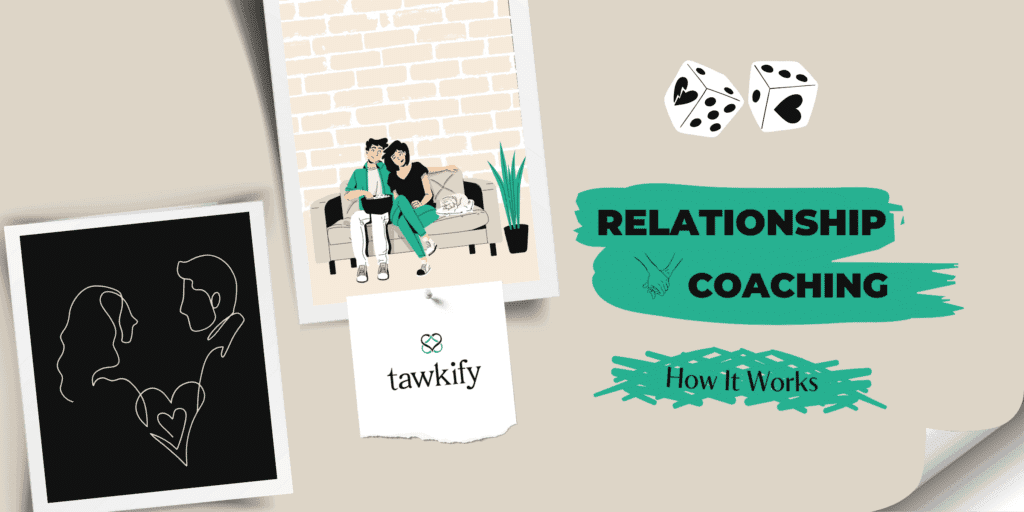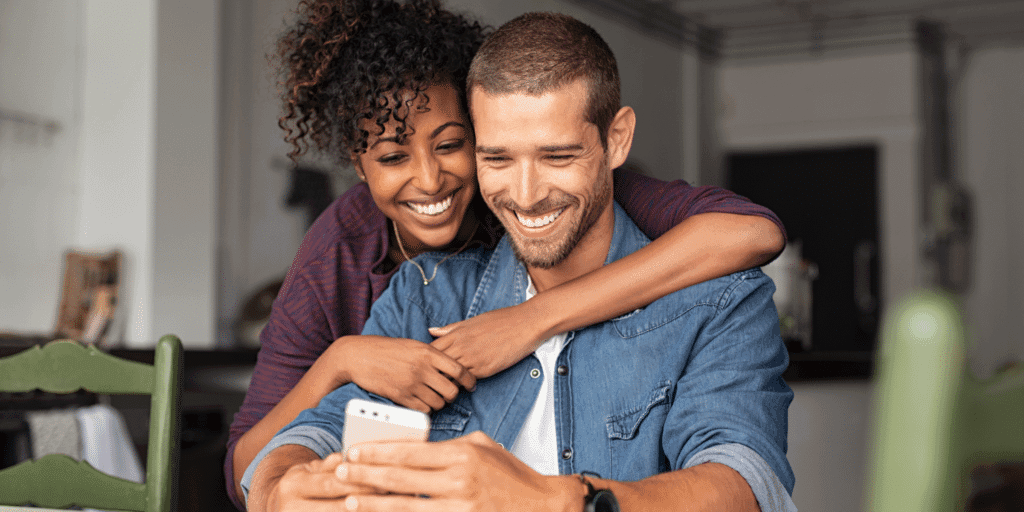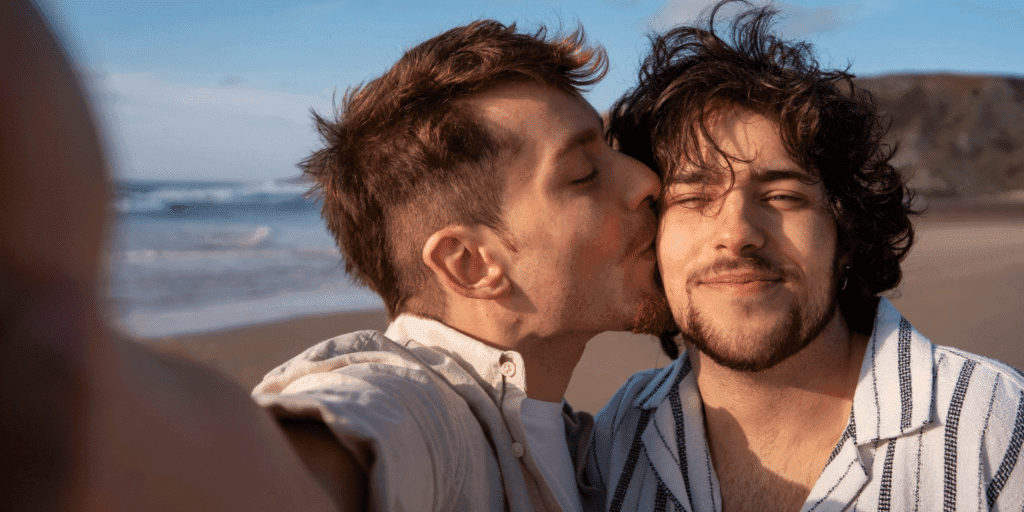A Complete Guide to Relationship Coaching

Navigating a relationship can sometimes seem like trying to get to a destination without a map. You might know or dream about what the destination looks like—communication in lock-step, great conflict resolution, fun and respectful physical intimacy—but the journey can be full of bumps in the road. That’s where the benefits of relationship coaching can come into play.
If you want to start or continue a relationship with a different perspective, helpful techniques (that you’ll actually use), and a better understanding of yourself, relationship coaching might be for you.
Let’s uncover what relationship coaching is, who might need it, the benefits, and how to get the most out of it.
In this article
What Is Relationship Coaching?

Relationship coaching is a specialized facet of life coaching that aims to help individuals and couples develop and hone the attitudes and skills they need to have satisfying and thriving relationships.
Therapy vs. Relationship Coaching
Now, you might be wondering how relationship coaching is different from seeing a counselor or therapist. For starters, there are trainings and certifications that a relationship coach can get, but there is no licensing process, as there is for a therapist.
Second, counselors and therapists tend to consider the whole person, their childhood, past traumas, and any clinical disorders. People who see therapists will probably do a lot of emotional processing and in-session work. On the other hand, relationship coaches focus on the present and help with perspectives, relationship skills, and intimacy, guiding clients through sessions but prompting outside work to actively meet goals.
For a simple comparison, you might think of a therapist as the big picture and a relationship coach as one part of that big picture.
Types of Relationship Coaching
Relationship coaches might specialize in specific areas, like being a dating coach for women or a dating coach for men. Similarly, they might focus on singles, long-term and married couples, and even non-romantic relationships, like workplace and family relationships. For the purposes of this article, we’ll be focusing on dating and relationship coaches.
Who Needs Relationship Coaching?

One of the benefits of relationship coaching is that it’s useful for everyone who is either in or wanting to be in a relationship. But here are some tangible examples:
- An individual who wants to avoid past mistakes with their current partner whom they’re dating or in a long-term relationship with
- A single individual who wants to make their next relationship as healthy as possible
- Dating or long-term couples who might be experiencing certain relationship issues
- Dating or long-term couples who want to learn new techniques to make their relationship the best it can be
- Anyone who wants to develop deeper connections, more intimacy, and positive perspectives on dating and relationships
When you’re looking for a relationship, there’s no comparison
Tired of swiping with no real connections? Tawkify takes a fresh approach to the process. With handpicked matches tailored just for you and personalized introductions, we do the work so you can focus on what matters — meaningful connections.
- 80% of people find success with Tawkify
- 1 Million+ relationship-ready singles
- 200,000 Successful connections and counting

Benefits of Relationship Coaching

There are so many benefits of relationship coaching, but it’s important to remember that the individualized benefits you’ll receive will depend on the goals you set.
Conflict Resolution
Every couple encounters conflicts, but sometimes each partner reverts to a negative, learned behavior during these times. A dating and relationship coach can provide advice and tools to help you create a constructive environment for dealing with challenging moments.
More Meaningful Connections
Perhaps you want to get deeper emotionally with the people you date, but you’re not sure how. A relationship coach will learn about what’s keeping you from trusting or becoming vulnerable and help you move over that hurdle.
Physical Intimacy
Intimacy isn’t only about strengthening the bond between two people, it’s also largely about connecting physically. Dating and relationship coaches can help you create a trusted, safe, respectful, and fun environment for exploring physical chemistry and intimacy.
Enhanced Communication
Communication is one of the keys to any healthy relationship, and you can unlock the key to better communication in a relationship, with tangible strategies for things like active listening, learning how to be non-confrontational, and expressing wants and needs vocally in a healthy way.
Knowing How to Show Love to Your Partner
Learn how your partner likes to be shown love and be able to express how you like to be loved. Your dating and relationship coach might use love languages or other methods to pinpoint and provide actionable steps.
Shedding Unhealthy Habits
Another fantastic benefit of relationship coaching is learning how to let go of habits that might be holding you back from a healthy partnership. These could either be individual habits or those that a couple has created together. Your coach should help you make way for new, healthy routines and perspectives, like only looking for relationship green flags or knowing that you’re worthy of being loved.
Greater Self-Awareness
Sometimes we need unbiased feedback to help us realize certain things about ourselves, and that’s where a relationship coach can help. They’ll comment and shed light on certain behaviors or ways of thinking that are hurting, rather than helping, you and your partner.
What to Expect During Relationship Coaching

Dating and relationship coaches might approach each session a little differently depending on their experience and training as well as your specific issues and goals. Generally speaking, though, there are certain things to expect from your time with a relationship coach:
- An introductory session, where you discuss your current challenges, what you hope the outcome of coaching will be, your relationship goals and values, and any other helpful information.
- A mixture of conversation and guided practice during each session. If you’re attending as a couple, there might be an in-session activity to help your coach understand how you interact with your partner.
- Helpful, real-time feedback about unhealthy behaviors or perspectives paired with healthy, proactive alternatives
- Homework so that you can put everything you’ve learned into practice, either individually and with your partner
Once you have reached your desired goal, your relationship coach might suggest discontinuing sessions or focusing future sessions on a different goal.
How to Get the Most Out of Relationship Coaching

When you’re ready to get started with relationship coaching, you probably know that there will be some work involved. As they say, you get out what you put in.
Follow these tips to make sure that you’re setting yourself up to receive the full benefits of relationship coaching.
Come Prepared
Do a little pre-session work before you meet with the coach for the first time. Think about what’s bothering or challenging you and/or your partner and why you want yourself or the situation to change. What are your desired outcomes? Better communication, better coparenting, getting vulnerable with a partner? Whatever your goal, think about it ahead of time so that you can effectively express it to your coach.
Try Different Coaches Until You Find the Perfect Fit
If you don’t like the first coach, try, try again. It’s important that you trust your dating and relationship coach and feel safe sharing your concerns, desires, and certain intimate details. It’s ok to try someone else before committing.
Don’t Be Afraid to Get Vulnerable
Being vulnerable with someone you don’t know very well might be difficult, but remember that this person isn’t here to insert themselves into your life; rather, they’re here to provide unbiased feedback to propel you forward, toward a better you and more satisfying relationships.
If you don’t feel comfortable sharing certain pieces of information, that’s ok. But try to keep honesty and open communication at the forefront so that your coach has all the information they need to help you.
Do Your Homework
Your relationship coach will probably give you exercises or activities to do outside of the session. These are opportunities for you to apply what you’ve learned to real-life scenarios. So, don’t pass them up!
Trust the Process
Relationship coaching is a process, and it will take as long as it takes to help you reach your goal—whether that’s 5 sessions or 15. Trust your coach, trust the process, and trust that you can reap the benefits of relationship coaching to find your person and continue your journey to a healthy relationship.

